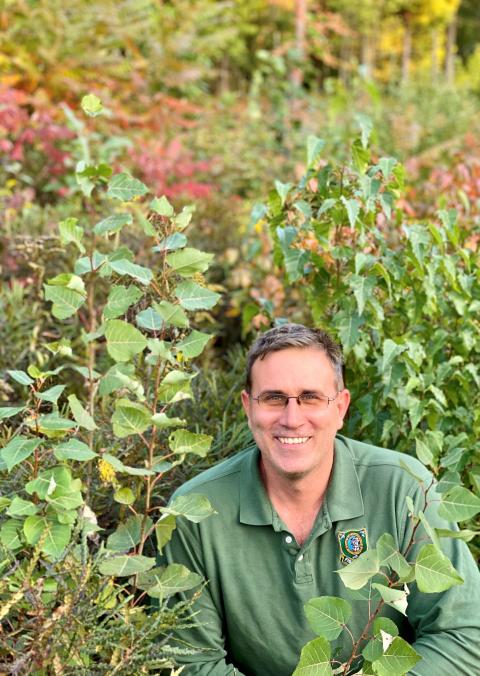
Pat Tate graduated from UNH in 1999 with a degree in wildlife and in 2007 with a master’s degree in natural resources: wildlife.
Pat Tate: I am employed with New Hampshire Fish & Game Department as a wildlife biologist. I have regional duties as well as the person leading the furbearer project. As the furbearer project leader, I monitor furbearing species such as red fox, gray fox, eastern coyote, bobcat, beaver, and fisher. Responsibilities include recommending research projects such as the bobcat research project UNH was contracted for during 2009 through 2014.
Pat: Wildlife biologists are integral in monitoring New Hampshire's wildlife populations and presenting recommendations to conserve those populations. I assist New Hampshire residents by providing technical assistance to solve wildlife interactions and educate members of the public about the importance and benefits of wildlife. I work with landowners who wish to enhance wildlife habitat on their property and work with habitat biologists in the New Hampshire Fish & Game Department. The above work keeps wildlife abundant, prominent, and in a positive light among New Hampshire residents.
Pat: UNH provided a strong knowledge base with diversity to investigate, adjust, and conquer unique issues I have faced on a daily and annual basis. The consistent public speaking requirements of course work prepared me for aspects I never suspected were so important to wildlife management. As aspiring biologists, we think about seclusion on the landscape working with animals. We almost always forget the human component and the need for communication to the public at a broad scale. While learning these communication skills at UNH, I also learned excellent fundamentals of wildlife biology and how to investigate factors effecting populations.
Pat: Aspiring students should become involved with other students of the field. Take advantage of extracurricular groups such as The Wildlife Society and participate in outdoor activities. Quiet time hiking New Hampshire's forests and fields exposes a person to many lessons which cannot be taught in the classroom. Become involved with agencies of interest whenever the possibility presents itself. Wildlife biologist positions are very competitive and it is the small details that set candidates apart.
Learn more